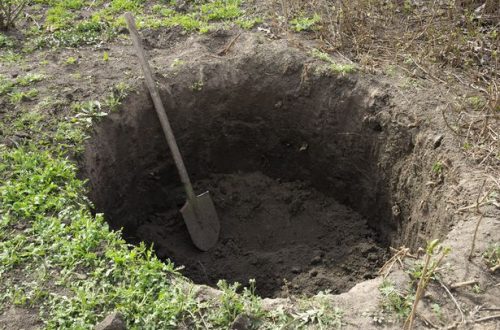This is a cross post by Ben Cohen of Z Word
Here are a couple of key passages from the report on the Gaza conflict commissioned by the UN’s utterly discredited Human Rights Council:
“While the Israeli Government has sought to portray its operations as essentially a response to rocket attacks in the exercise of its right to self defence, the Mission considers the plan to have been directed, at least in part, at a different target: the people of Gaza as a whole…deeds by Israeli forces and words of military and political leaders prior to and during the operations indicate that as a whole they were premised on a deliberate policy of disproportionate force aimed not at the enemy but at the ’supporting infrastructure.’ In practice, this appears to have meant the civilian population.”
This claim – essentially, that Israel was waging war against every man, woman and child in Gaza – is just astounding.
Nearly 1.5 million people live in Gaza. In a war apparently directed against civilians, one would expect that the number of non-combatant fatalities would be astronomical. According to the Palestinian Center for Human Rights, 1,284 Palestinians were killed, of whom 894 – 70 per cent – were civilians. So, going by those figures, civilians made up the decisive majority of casualties. Now, it should be noted that other calculations of civilian casualties are lower – according to the IDF, there were 1,166 fatalities, of whom 25 per cent were civilians, while the Israeli NGO B’Tselem claimed 1,382 fatalities, of whom 56 per cent were civilians – but even if one tends towards the higher estimates, the numbers do not remotely justify the claim that Israeli forces spent more than three weeks deliberately targeting civilians in one of the most densely-populated spots on the planet.
As Colonel Richard Kemp – a veteran of British Army service in Afghanistan and Iraq – observed:
I have spoken of the considerable British and American efforts to operate within the laws of war and to reduce unnecessary civilian casualties. But what of the Israeli Defence Forces? The IDF face all the challenges that I have spoken about, and more. Not only was Hamas’s military capability deliberately positioned behind the human shield of the civilian population and not only did Hamas employ the range of insurgent tactics I talked through earlier. They also ordered, forced when necessary, men, women and children , from their own population to stay put in places they knew were about to be attacked by the IDF. Fighting an enemy that is deliberately trying to sacrifice their own people. Deliberately trying to lure you in to killing their own innocent civilians.
And Hamas, like Hizballah, are also highly expert at driving the media agenda. They will always have people ready to give interviews condemning Israeli forces for war crimes. They are adept at staging and distorting incidents.
Their people often have no option than to go along with the charades in front of the world’s media that Hamas so frequently demand, often on pain of death.
What is the other challenge faced by the IDF that we British do not have to face to the same extent?
It is the automatic, pavlovian presumption by many in the international media, and international human rights groups, that the IDF are in the wrong, that they are abusing human rights.
So what did the IDF do in Gaza to meet their obligation to operate within the laws of war? When possible the IDF gave at least four hours’ notice to civilians to leave areas targeted for attack.
Attack helicopter pilots, tasked with destroying Hamas mobile weapons platforms, had total discretion to abort a strike if there was too great a risk of civilian casualties in the area. Many missions that could have taken out Hamas military capability were cancelled because of this.
During the conflict, the IDF allowed huge amounts of humanitarian aid into Gaza. This sort of task is regarded by military tacticians as risky and dangerous at the best of times. To mount such operations, to deliver aid virtually into your enemy’s hands, is to the military tactician, normally quite unthinkable.
But the IDF took on those risks.
In the latter stages of Cast Lead the IDF unilaterally announced a daily three-hour cease fire. The IDF dropped over 900,000 leaflets warning the population of impending attacks to allow them to leave designated areas. A complete air squadron was dedicated to this task alone.
Leaflets also urged the people to phone in information to pinpoint Hamas fighters vital intelligence that could save innocent lives.
The IDF phoned over 30,000 Palestinian households in Gaza, urging them in Arabic to leave homes where Hamas might have stashed weapons or be preparing to fight. Similar messages were passed in Arabic on Israeli radio broadcasts warning the civilian population of forthcoming operations.
Despite Israel’s extraordinary measures, of course innocent civilians were killed and wounded. That was due to the frictions of war that I have spoken about, and even more was an inevitable consequence of Hamas’ way of fighting.
By taking these actions and many other significant measures during Operation Cast Lead the IDF did more to safeguard the rights of civilians in a combat zone than any other Army in the history of warfare.
The UN Commission has been fatally compromised by the “Pavlovian presumption” described by Colonel Kemp. Indeed, one of the four members of the Commission, British academic Christine Chinkin, made her mind up as long ago as January that Israel was guilty of war crimes. How comforting it must have been for her to serve on a body whose mandate – established by a resolution sponsored by human rights stalwarts Cuba, Egypt and Pakistan – was to “investigate all violations of international human rights law and international humanitarian law by the occupying Power, Israel, against the Palestinian people throughout the Occupied Palestinian Territory, particularly in the occupied Gaza Strip, due to the current aggression.”
Nice and even-handed, then. No wonder that in one of his more candid moments, Judge Richard Goldstone, the South African jurist who headed the Commission, told Al Jazeera, “I can understand Israel’s suspicion with regard to the Human Rights Council – it has been partial with regard to Israel for many years.”
Apparently, nothing has changed.



